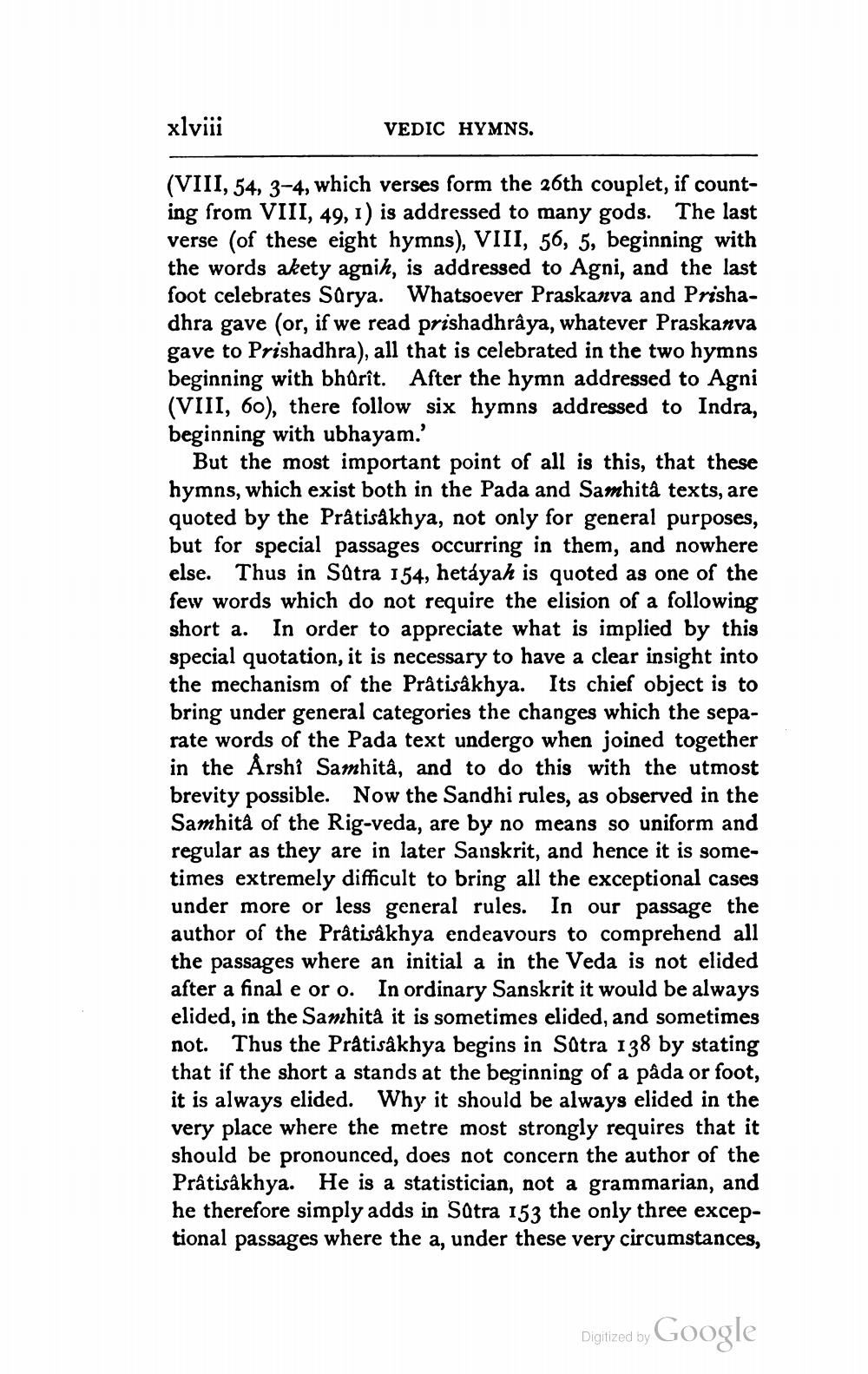________________
xlviii
VEDIC HYMNS.
(VIII, 54, 3-4, which verses form the 26th couplet, if counting from VIII, 49, 1) is addressed to many gods. The last verse (of these eight hymns), VIII, 56, 5, beginning with the words akety agnih, is addressed to Agni, and the last foot celebrates Sarya. Whatsoever Praskanva and Prishadhra gave (or, if we read prishadhraya, whatever Praskanva gave to Prishadhra), all that is celebrated in the two hymns beginning with bhârît. After the hymn addressed to Agni (VIII, 60), there follow six hymns addressed to Indra, beginning with ubhayam.
But the most important point of all is this, that these hymns, which exist both in the Pada and Samhità texts, are quoted by the Prátisåkhya, not only for general purposes, but for special passages occurring in them, and nowhere else. Thus in Satra 154, hetkyah is quoted as one of the few words which do not require the elision of a following short a. In order to appreciate what is implied by this special quotation, it is necessary to have a clear insight into the mechanism of the Prátisakhya. Its chief object is to bring under general categories the changes which the separate words of the Pada text undergo when joined together in the Årshi Samhità, and to do this with the utmost brevity possible. Now the Sandhi rules, as observed in the Samhita of the Rig-veda, are by no means so uniform and regular as they are in later Sanskrit, and hence it is sometimes extremely difficult to bring all the exceptional cases under more or less general rules. In our passage the author of the Prátisakhya endeavours to comprehend all the passages where an initial a in the Veda is not elided after a final e or o. In ordinary Sanskrit it would be always elided, in the Samhità it is sometimes elided, and sometimes not. Thus the Prátisakhya begins in Sätra 138 by stating that if the short a stands at the beginning of a pâda or foot, it is always elided. Why it should be always elided in the very place where the metre most strongly requires that it should be pronounced, does not concern the author of the Prâtisâkhya. He is a statistician, not a grammarian, and he therefore simply adds in Satra 153 the only three exceptional passages where the a, under these very circumstances,
Digitized by Google




